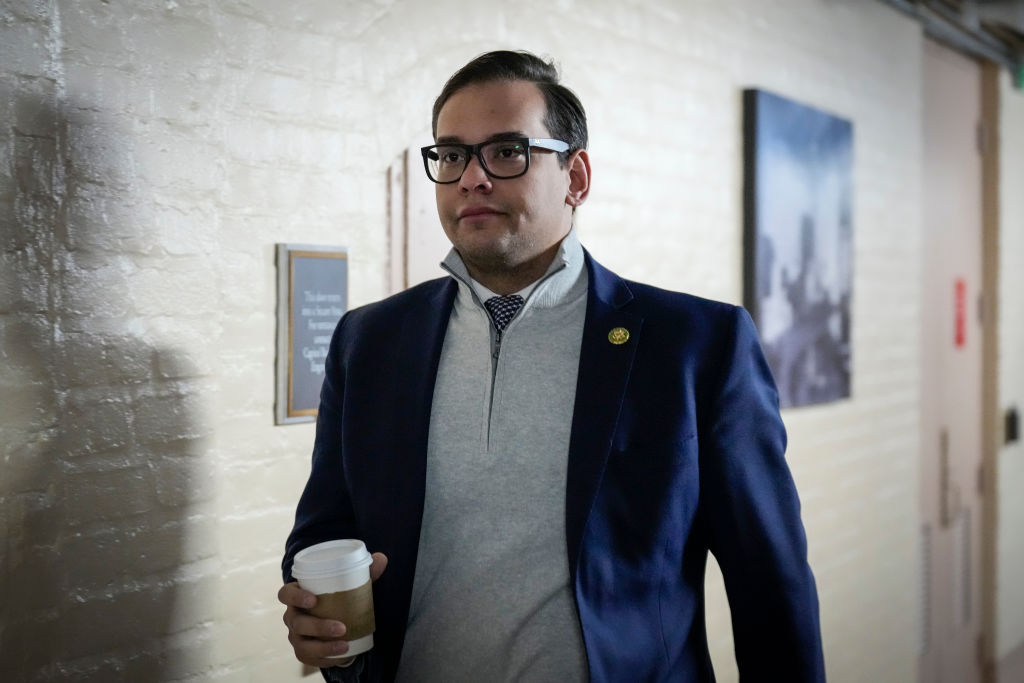Here is what's happening across the United States and around the world today.
Obama authorizes airstrikes in Syria for first time, part of broad effort to combat militants
Opening a new military front in the Middle East, President Barack Obama authorized U.S. airstrikes inside Syria for the first time Wednesday night, along with expanded strikes in Iraq as part of "a steady, relentless effort" to root out Islamic State extremists and their spreading reign of terror.
"We will hunt down terrorists who threaten our country, wherever they are," Obama declared in a prime-time address to the nation from the White House. "This is a core principle of my presidency: If you threaten America, you will find no safe haven."
Obama announced that he was dispatching nearly 500 more U.S. troops to advise and assist Iraqi security forces, as well as conduct intelligence and reconnaissance flights, bringing the total number of American forces sent there this summer to more than 1,500. He also urged Congress anew to authorize a program to train and arm Syrian rebels who are fighting both the Islamic State militants and Syrian President Bashar Assad.
Obama's plans amounted to a striking shift for a president who rose to political prominence in part because of his early opposition to the Iraq war. While in office, he has steadfastly sought to wind down American military campaigns in the Middle East and avoid new wars — particularly in Syria, a country where the chaos of an intractable civil war has given the Islamic State space to thrive and move freely across the border with Iraq.
Speaking on the eve of the anniversary of the Sept. 11, 2001, attacks, Obama's plans were also an admission that years of American-led war in the Middle East have not quelled the terror threat emanating from the region.
U.S. & World
Stories that affect your life across the U.S. and around the world.
Expanding US airstrikes in Iraq and extending them to Syria are 1st steps in long campaign
By expanding his military campaign against the Islamic State group, President Barack Obama hopes to reverse the militants' momentum in Iraq, squeeze their sanctuary in Syria and erode their recruiting appeal across the greater Mideast. Those are key steps toward Obama's stated goal of eventually destroying the extremist group.
The strategy's success, however, also hinges on a set of more difficult moves: effective coordination with Iraqi and Kurdish ground forces, undercutting financial and ideological support for the Islamic State group, and building up anti-Islamic State forces in Syria without strengthening the regime of President Bashar Assad, which Obama considers illegitimate.
These U.S. gains are unlikely to occur quickly, but broadening U.S. airstrikes in Iraq and extending them to Syria could "change the reality and the perception of whether ISIL has the momentum or whether they are being rocked back on their heels," said Michele Flournoy, the Obama administration's first policy chief at the Pentagon and now the chief executive officer at the Center for a New American Security think tank. ISIL is an alternative acronym for the Islamic State group.
Undermining the Islamic State group's popular image as a military steamroller is especially important, particularly in the short run, she said.
"On the Iraq side of the border it has already begun," she said.
Syrian opposition welcomes Obama's speech, calls for removal of Assad
Syria's main Western-backed opposition group on Thursday welcomed President Barack Obama's authorization of U.S. airstrikes targeting the Islamic State group inside Syria, saying it stands "ready and willing" to partner with the international community to defeat the extremists.
But the Syrian National Coalition said that equally important was the realization that fighting the Islamic State group alone is not enough and should be coupled with degrading and ultimately removing President Bashar Assad from power.
Kurdish politicians in Iraq similarly praised Obama's announcement of wider airstrikes and assistance to Iraqi forces.
"We welcome this new strategy," said Hoshyar Zebari, a Kurdish politician and one of Iraq's newly-appointed deputy prime ministers. "We think it will work with the cooperation of the indigenous local forces like Iraqi Security Forces, the Kurdish peshmerga and other forces."
Zebari also called for active Arab participation in the war against the Islamic State, saying the group was a threat not just to Iraq and Syria but the entire world.
Analysis: Criticized as cautious, Obama orders airstrikes with unknown costs and consequences
For a president criticized as overly cautious and reluctant to lead, Barack Obama is taking a huge risk. He is thrusting U.S. fighting forces into a growing military operation with clear dangers, unknown costs, an indefinite length and unpredictable consequences.
After years of resistance, the president who wanted to end America's wars will now oversee a sweeping airstrike campaign in both Iraq and Syria, a country mired in an intractable civil war. He's sending hundreds more U.S. troops to Iraq to help train security forces there. And he's pressing Congress for authority to pour U.S. weaponry into Syria to strengthen opposition forces fighting both the Islamic State militants and President Bashar Assad's government.
All three are precisely the scenarios Obama has assiduously sought to avoid.
For now, the public is with him, with polls showing wide support for airstrikes in Iraq and Syria even as Obama's own approval ratings slump and his foreign policy ratings sink to near record lows.
"This is America's leadership at its best," Obama declared in his address to the nation, as if to answer critics even in his own party who complain he has been too slow to act.
Human rights group says Israel committed war crimes in Gaza war, highlights school attacks
A leading international rights group on Thursday alleged that Israel committed war crimes during this summer's Gaza war, saying it reached that conclusion after investigating three attacks on or near United Nations-run schools housing displaced Palestinians.
Human Rights Watch said it investigated the strikes at the schools in three separate locations in the war-battered Gaza Strip, attacks in which at least 45 people were killed.
According to its investigation, based on field research and interviews with witnesses, the New York-based group said no military targets were apparent in the area of the schools and that some of the attacks were indiscriminate.
"The Israeli military carried out attacks on or near three well-marked schools where it knew hundreds of people were taking shelter, killing and wounding scores of civilians," Fred Abrahams, special adviser at Human Rights Watch, said in a statement. "Israel has offered no convincing explanation for these attacks on schools where people had gone for protection and the resulting carnage."
Israel argues that the heavy civilian death toll during the 50-day summer war was Hamas' fault, accusing the Islamic militant group of launching rockets — and drawing retaliation — from school yards, residential areas and mosques.
Yes camp winning battle of ads in Scotland campaign as voting nears
When the campaign to keep Scotland in the United Kingdom launched a recent TV ad, the spot went viral — but for all the wrong reasons.
In a kitchen, a woman complains that while her husband can't stop talking about the independence referendum, she doesn't have time to think about voting because she's too busy with housework.
Within hours, spoof videos appeared online, mocking the perceived sexist tone. "The tone of the whole video was completely outdated, sexist and insulting to women," said Sandra Geddes, a 33-year-old office worker who said she plans to vote no on independence even though she was angered by the commercial.
In the battle of the ads in Scotland's independence debate, the Yes camp is scoring the most points — and that may be a factor in the surge that has given it a chance of winning on Sept. 18 after months trailing far behind. While the "Better Together" campaign has been derided for old-fashioned, even patronizing ads, the breakaway side has engaged voters with a slick and humorous campaign that presents a dynamic picture of Scotland.
The pro-independence camp recently won hearts with a poster of a baby's hand in the tender grip of a parent with the slogan "Scotland's future in Scotland's hands." While it appealed to a sense of family, it didn't smack of conservative "family values" as some of the No campaign's ads are seen as doing. Critics claim pro-unity posters bearing messages such as "we love our kids, we're saying no thanks" are offensive for implying Yes campaign supporters don't love their families.
That's what's happening. Read more stories to jump start your day in our special Breakfast Buzz section.



